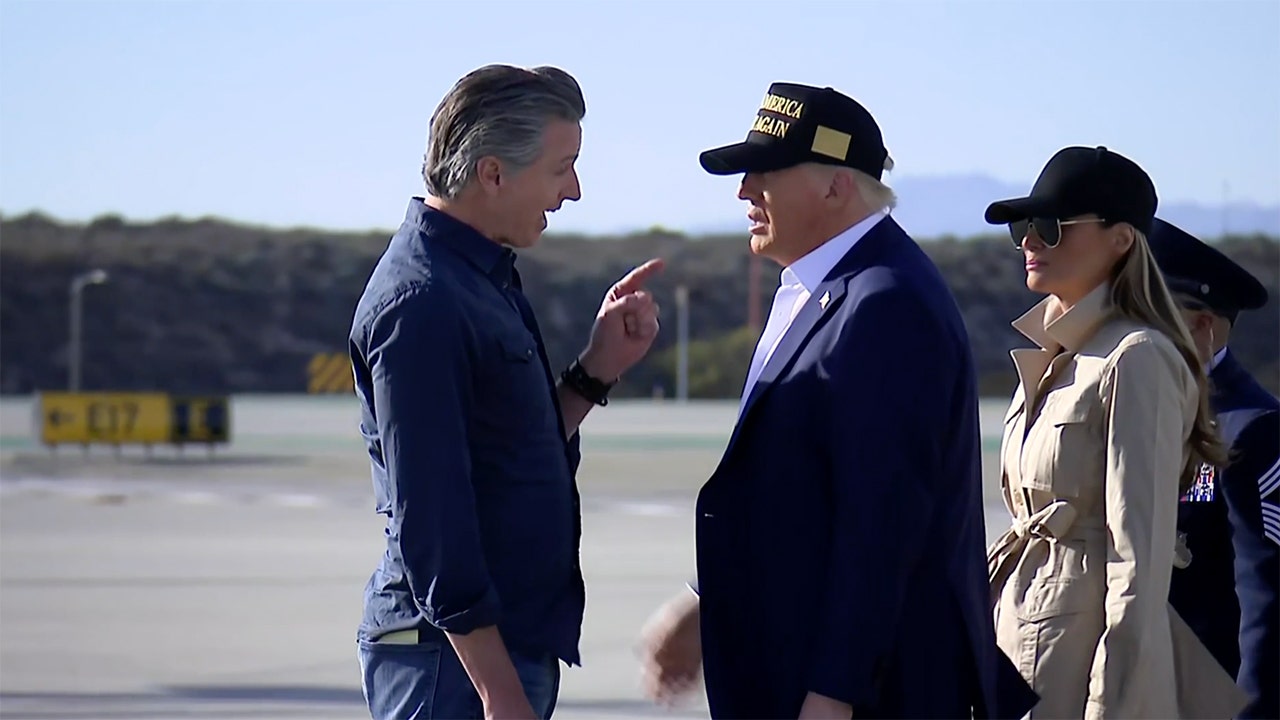WASHINGTON — President Trump’s wariness over bombing Iran is due in part to concerns about creating “another Libya” if Supreme Leader Ayatollah Khamenei is toppled, administration insiders told The Post — as Trump shelves his decision for up to two weeks.
The president in recent days has specifically mentioned the oil-rich North African country’s decade-long plunge into anarchy in 2011 — after the US joined a NATO bombing campaign to oust dictator Muammar Gaddafi — three sources close to the administration said.
Trump “doesn’t want it to turn into Libya,” said one insider familiar with the administration’s deliberations on potentially joining Israel’s airstrikes against Iran’s nuclear program.
On Thursday afternoon, White House press secretary Karoline Leavitt announced that the president was also biding his time before deciding whether to join Israel’s strikes “based on the fact that there’s a substantial chance of negotiations that may or may not take place with Iran in the near future.”
Iran’s Foreign Minister Araghchi is expected to meet his UK, French, German, and EU counterparts in Geneva, Switzerland on Friday for talks. Trump’s special envoy Steve Witkoff is not set to attend, Leavitt said, but noted that he’s continued his own conversations with the Iranians.
One of The Post’s sources said they directly heard the president say in private he was worried about Iran becoming like Libya before Israel began its aerial assault on Iran.
Other sources were briefed by those who had heard him say so following the start of the conflict last week, with one source close to the administration saying he also mentioned Afghanistan and Iraq.
A fifth source lacked direct knowledge of the Libya remarks, but was briefed on Trump’s considerations, said the president seems most inclined to order limited airstrikes to finish off Iran’s nuclear facilities at Fordow and Natanz with 30,000-pound “bunker buster” bombs that can’t be carried on Israeli jets.
“Libya was a much more extended kind of bombing commitment, and it ended up being regime change,” the fifth source noted.
“If the regime falls [in Iran], then it’s not on Trump, because that’s not the goal of his very limited strike.”
That source mentioned concern that “we get somebody worse than Khamenei.”
Read the latest on the conflict between Israel and Iran
“As far as President Trump goes, he’s not going to get in the business of who runs Iran, that’s very salable to his base,” the source said.
If the US does successfully use bunker busters on the nuclear sites, one source close to the White House said “there is still dealing with Iran’s response” and fears of contamination or Iran retaliating through terrorism.
“He’d rather have a deal,” the source told The Post.
“There are two reasons Trump talks about Libya: the first is the chaos after what we did to Gaddafi. The second is the Libya intervention made it more difficult to negotiate deals with countries like North Korea and Iran,” said the source who heard the president directly mention the comparison.
Israel’s defense minister left no doubt that the Jewish state is in favor of regime change on Thursday after dubbing Iran’s supreme leader “the modern Hitler.”
“The IDF has been instructed and knows that to achieve all the objectives, without question this man should no longer continue to exist,” Defense Minister Israel Katz said.
Hours later, Prime Minister Benjamin Netanyahu said the choice of US involvement in the conflict was “entirely” up to Trump, claiming for the first time that the Israeli military was capable of decimating the remaining Iranian nuclear facilities without American bunker-buster bombs.
“We will achieve all our objectives and hit all of their nuclear facilities. We have the capability to do that,” Netanyahu said when asked by a reporter about the Fordow Fuel Enrichment Plant hidden half a mile under a mountain.
After Israel launched its preemptive airstrikes on Iran last week, many military experts had doubted that the Jewish state has the capabilities of taking out Fordow, given how far underground it’s located.
Even Israel’s 2,000-pound bombs, purchased from the US, had been believed to be too small.
Multiple countries in the region have been torn apart by long-running civil wars involving the US — including Afghanistan, Iraq, Syria and Yemen — but Trump has repeatedly pointed to Libya.
Libya’s longtime dictator Gaddafi, who ruled for 42 years and voluntarily gave up a nuclear weapon program in 2003, was toppled by domestic foes aided by the Obama administration’s intervention.
Khamenei similarly has ruled for a generation — with 35 years in power as supreme leader after nearly eight years as Iran’s president under the first supreme leader, Ayatollah Khomeini.
In Libya, a hoped-for democratic transition gave way to a hellscape of ruthless warlords and religious extremists.
Slave markets opened and Islamic State terrorists filmed themselves beheading groups of Christians on the beach. Oil production plunged and the lack of a central government prompted Africans from across the continent to cross the Mediterranean to Europe in unsafe boats.
Leavitt told reporters at Thursday’s White House briefing that “the president is balancing a lot of viewpoints and he is listening not just to other world leaders, but to his advisors and to people here in the country and the American people too.”
“Based on the fact that there’s a substantial chance of negotiations that may or may not take place with Iran in the near future, I will make my decision whether or not to go within the next two weeks,” she said, sharing a full statement from Trump.
On regime change, Leavitt said “the president’s top priority right now is to ensure that Iran can not attain a nuclear weapon and providing peace and stability to the Middle East.”
The White House referred The Post to Leavitt’s comments made during the briefing.














